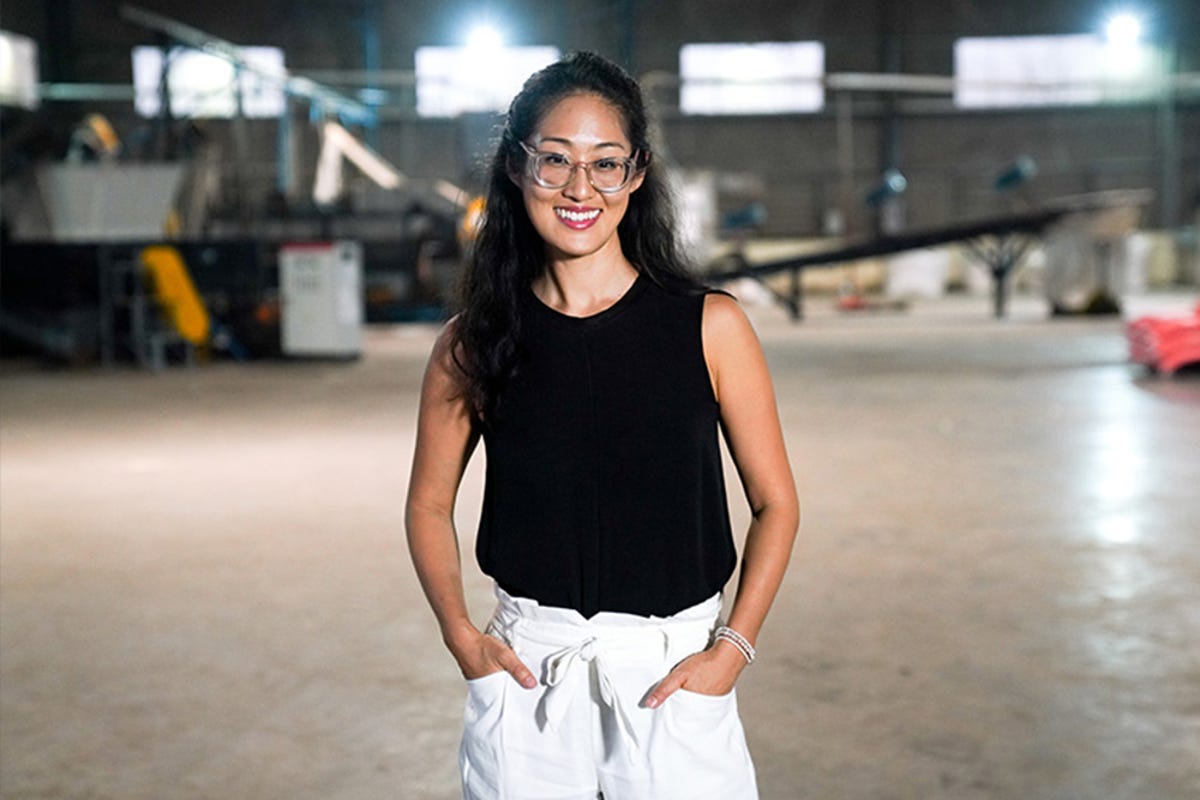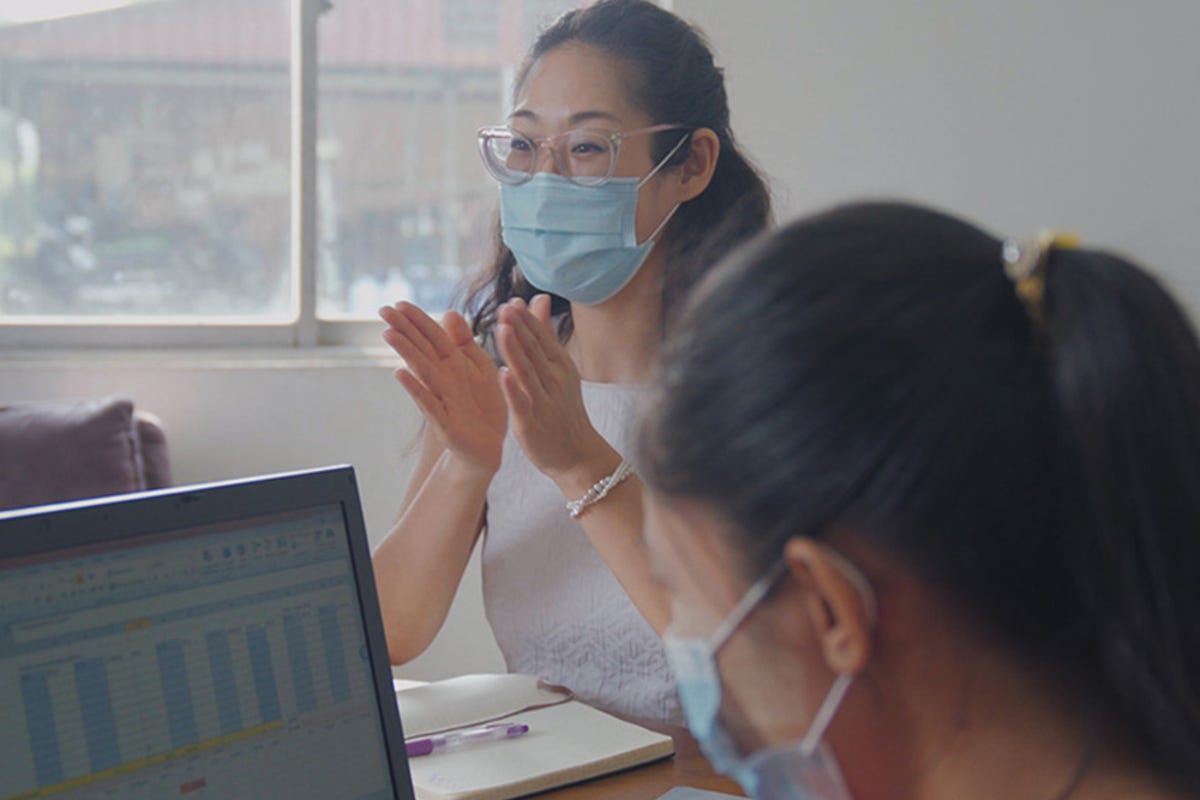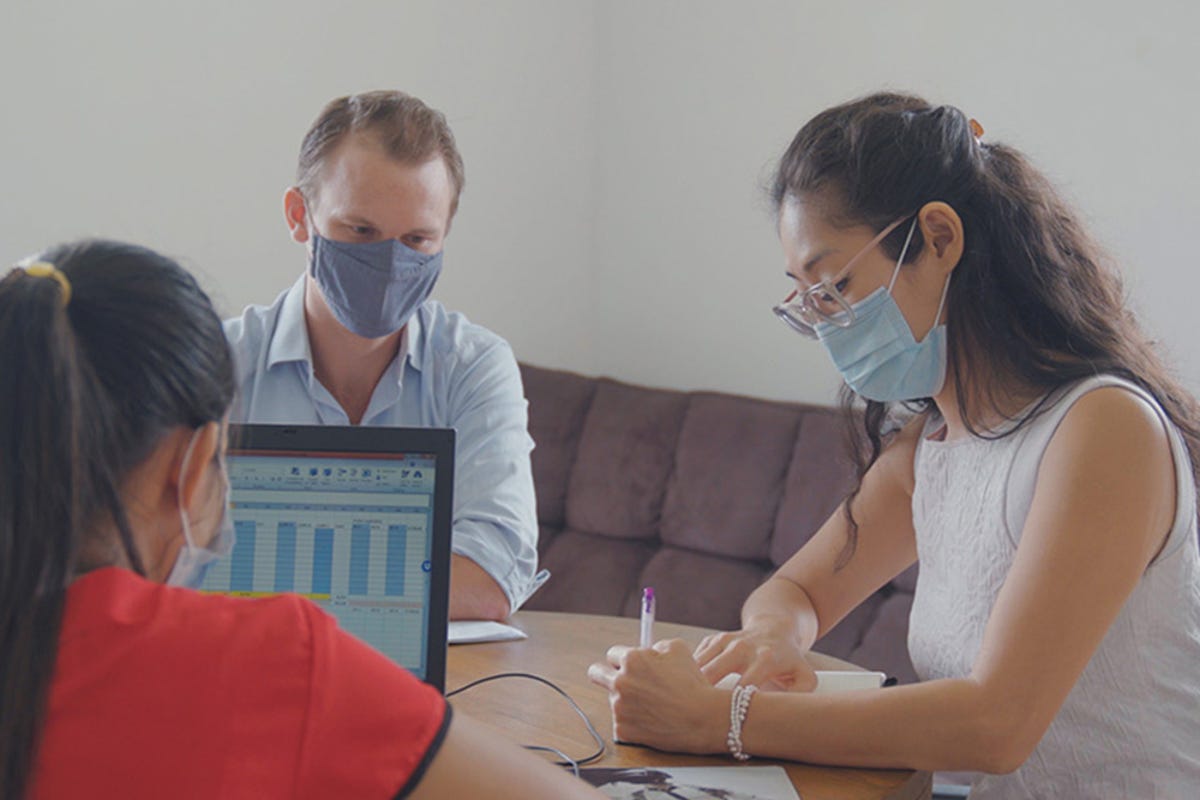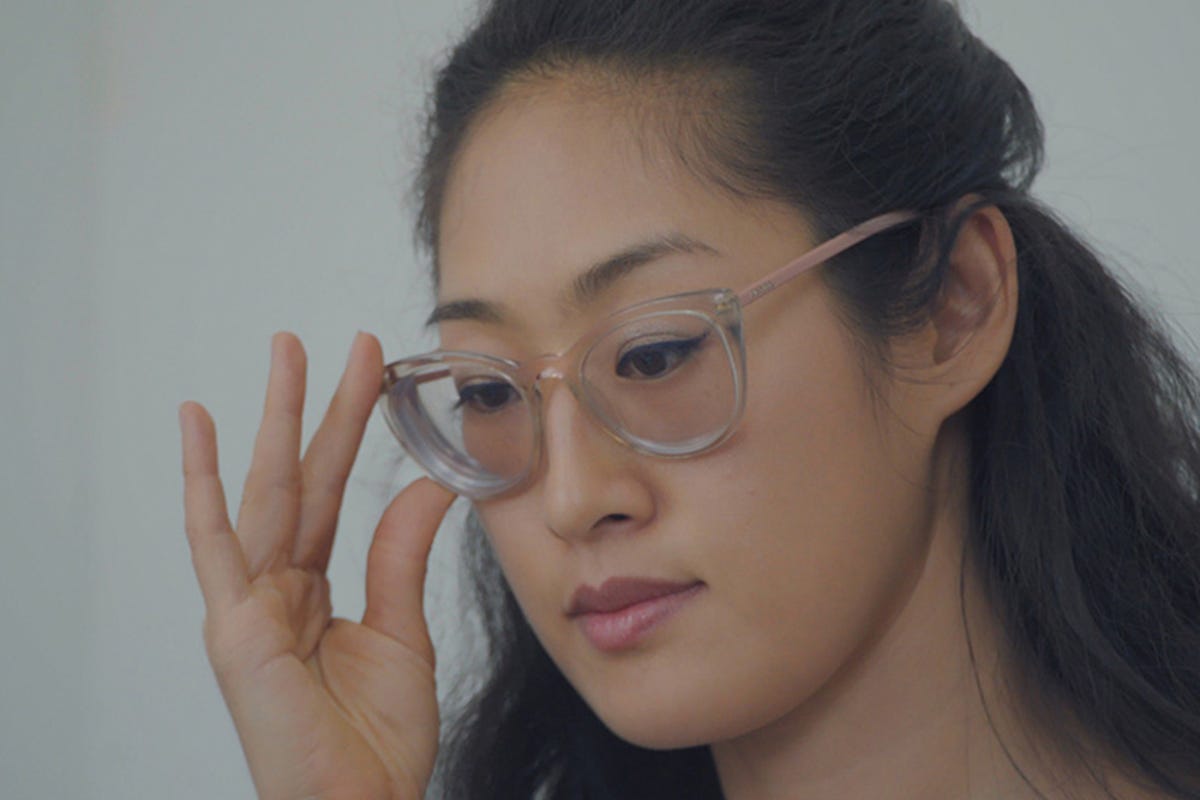Fellow Portrait
Mimi Wu
Myanmar Recycles
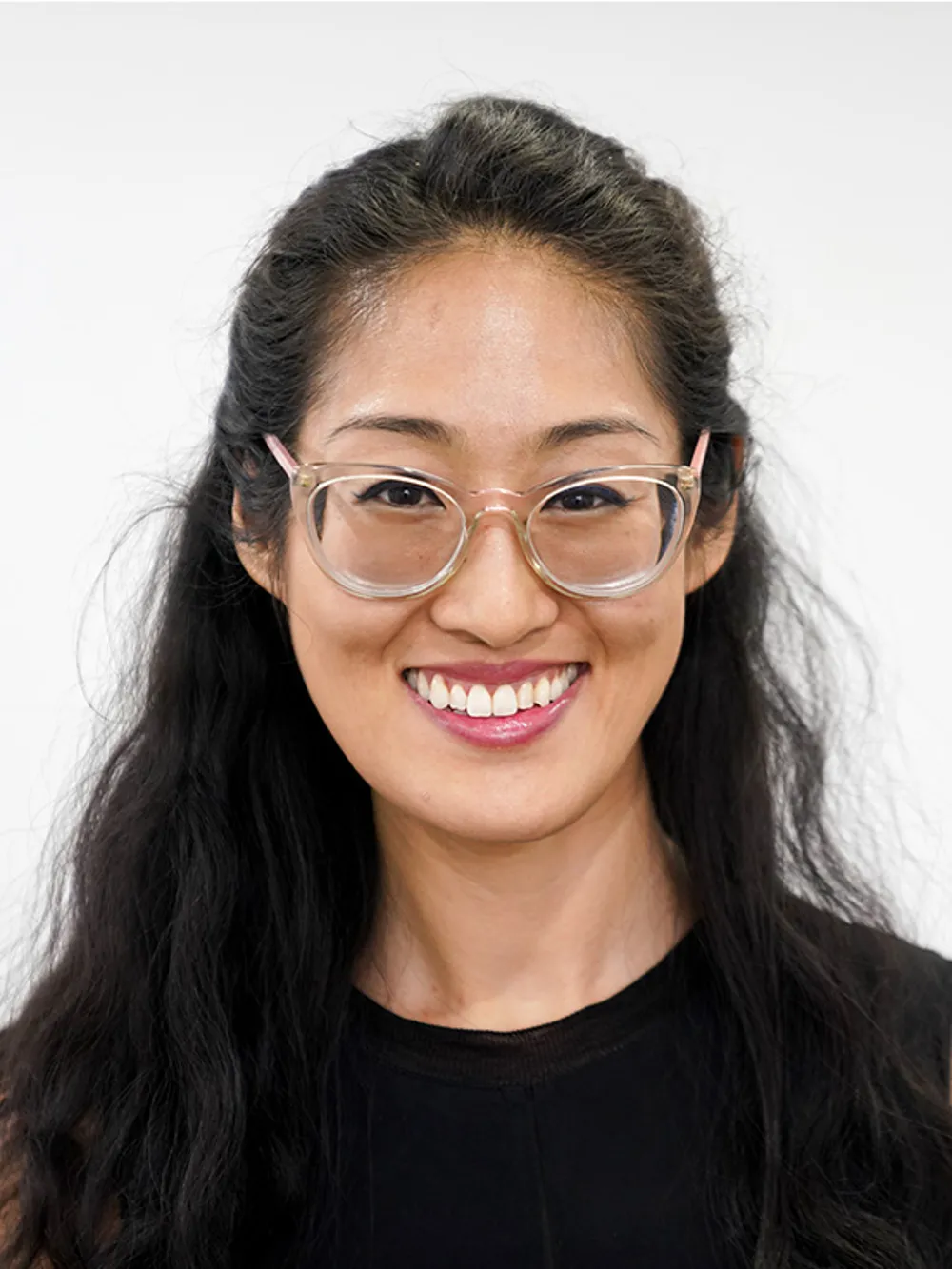
Myanmar Recycles collects hard-to-recycle, single-use plastic waste and recycles it into resin, thereby promoting a circular, closed-loop economy for plastics
South Asia and Central Asia
MYANMAR
Fellow
2021
Updated March 2021
Earth faces a plastic pollution crisis
Nearly two million single-use plastic bags are distributed worldwide each minute to hold everything from a loaf of bread to a pair of yoga pants. These bags eventually end up in landfills, where they degrade into microplastics that contaminate water and soil. Unlike more easily recycled types of plastic, the film that makes up single-use plastic bags is difficult to collect, wash, sort, and melt down.
Only nine percent of the plastic ever made has been recycled. As one of many countries contributing to this worldwide problem, Myanmar generates about a million tons of plastic each year. More than half is openly burned, dumped into waterways, or tossed as litter.
Over time, I became more aware of how plastic waste pollution is affecting our climate and health as well. I have a lot of grief about it because if we don't have our environment, we really don't have much else. So reducing plastic waste is something that I really want to be part of and change.
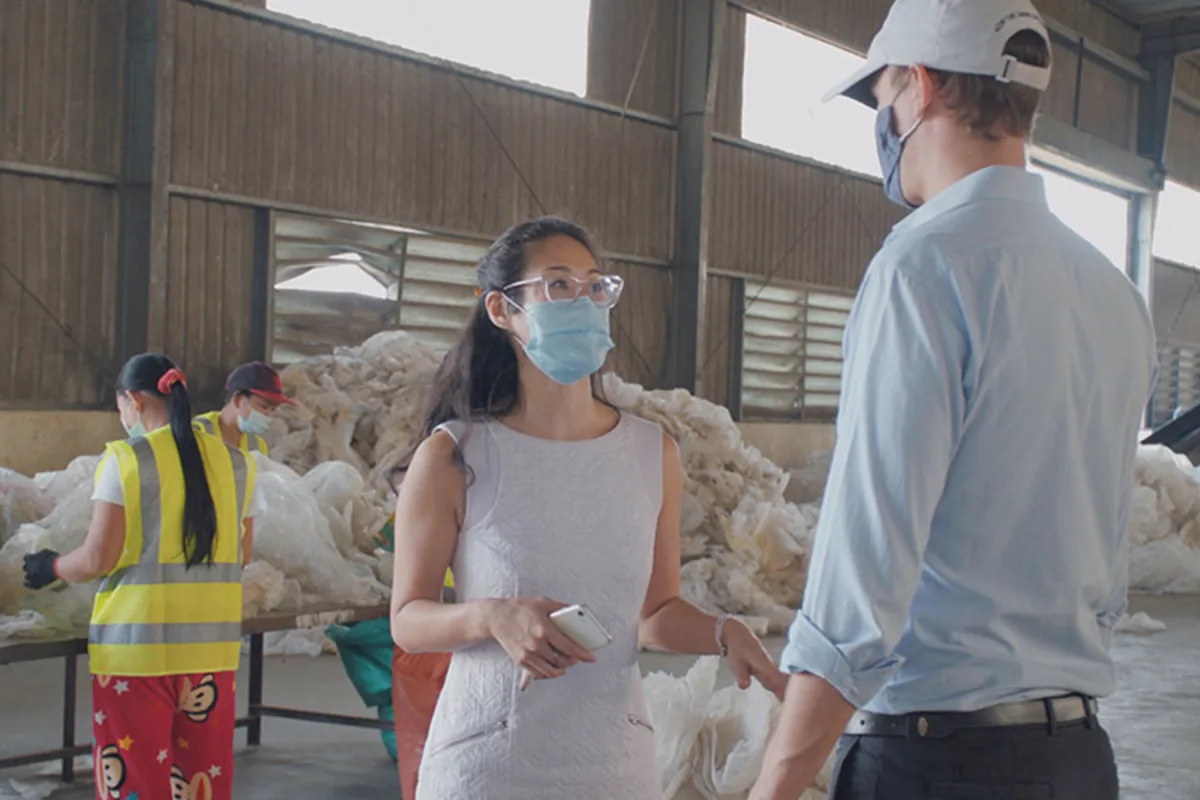
An industrial-scale solution to plastic pollution
Myanmar Recycles, co-founded in 2017 by Mimi Wu, solves the difficult problem of recycling plastic film, diverting single-use plastic from the waste stream and mitigating its environmental consequences. “We set up with the intention of collecting and recycling these waste streams from the largest landfill in Yangon, Myanmar's commercial capital,” Mimi says. The end product of the company’s recycling process is plastic pellets, which can become everything from wood-replacement composite boards to flexible pipes and household bottles.
The company provides fair and transparent value for the waste, directly benefiting the collectors who are a part of the recycling system in countries like Myanmar. And its scalable collection model works in countries with little waste infrastructure, helping create alternatives to nonrenewable fossil-fuel-derived virgin resin.
What sets us apart from other companies is our vision of a zero-plastic-waste future. We focus on tough-to-recycle plastic bags, also known as film. And globally there aren't as many companies that recycle film.
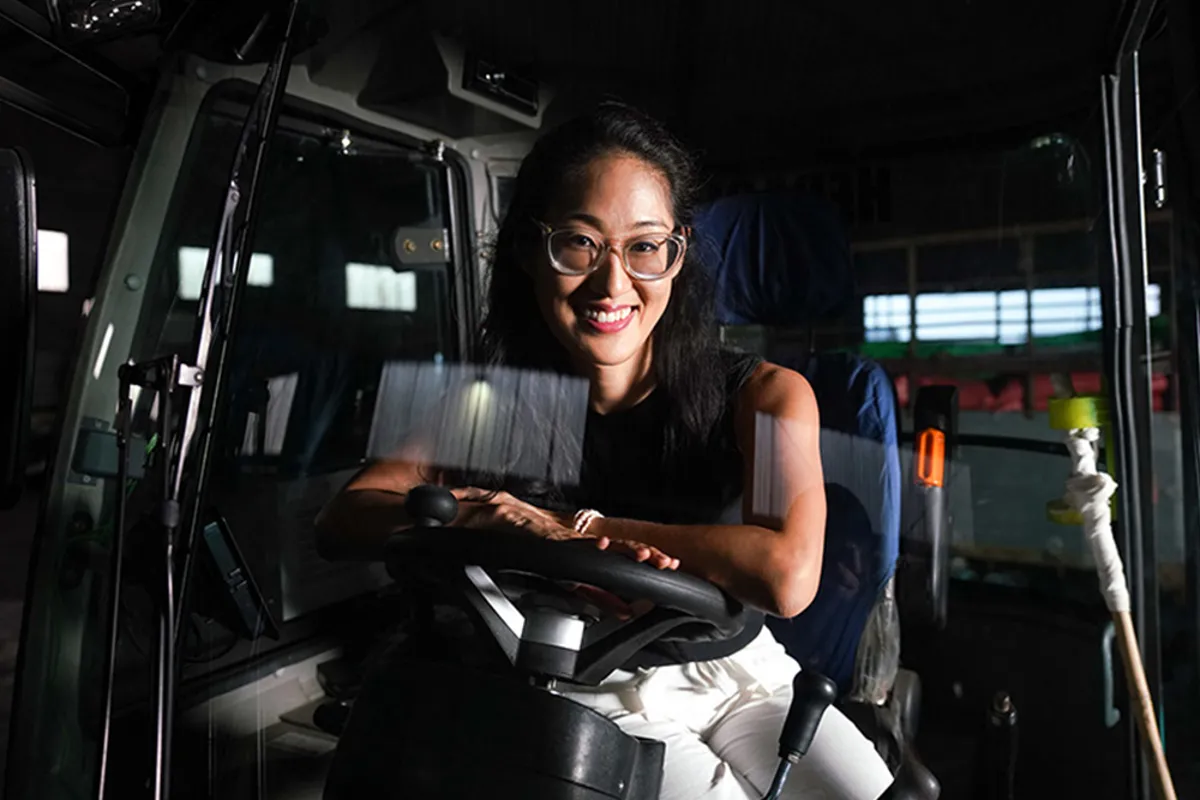
Making meaning in Myanmar and beyond
Mimi had the idea for the company in 2012 when working on global public health issues in Uganda. “I was invited to Myanmar by friends who were looking for investment opportunities there in 2013,” she says. At the time, she was searching for an endeavor with greater impact than her NGO-related work.
Unlike some entrepreneurs, Mimi hadn’t always dreamed of starting a business. Instead, she wanted to do something meaningful. “I've always been impact-driven,” she says. Her commitment to environmental issues started when she read a friend’s thesis about the Great Pacific Garbage Patch. “I had no idea that it existed. And that really sparked some curiosity.”
Apart from the plastic it has kept out of the waste stream, Myanmar Recycles has positively affected the local economy. “Collectors of the post-consumer plastic benefit directly by having jobs. We estimate that we've engaged with over 230 collectors. And we've engaged with 40 to 60 aggregators, who represent about 600 individuals.” Both collectors and aggregators are part of the informal economy and often have difficulty finding employment.
Through advocacy, the company seeks to influence policy and reduce global plastic dependence. “I want to be part of the action in coming up with real, tangible solutions for solving plastic pollution, and not just in Myanmar,” Mimi says.
One bag at a time, Myanmar Recycles is helping create a future where plastic no longer litters roadsides, endangers wildlife, or collects in patches in the ocean.
So far we have recovered and recycled approximately 1,800 tons of plastic waste. We’re so grateful for the global recognition we’re receiving because it’s really calling attention to not only how important recycling plastic packaging is but also how difficult it is to do. We are the partner of choice for global brands and companies to help collect and process traditionally unrecyclable plastic packaging in Myanmar.
